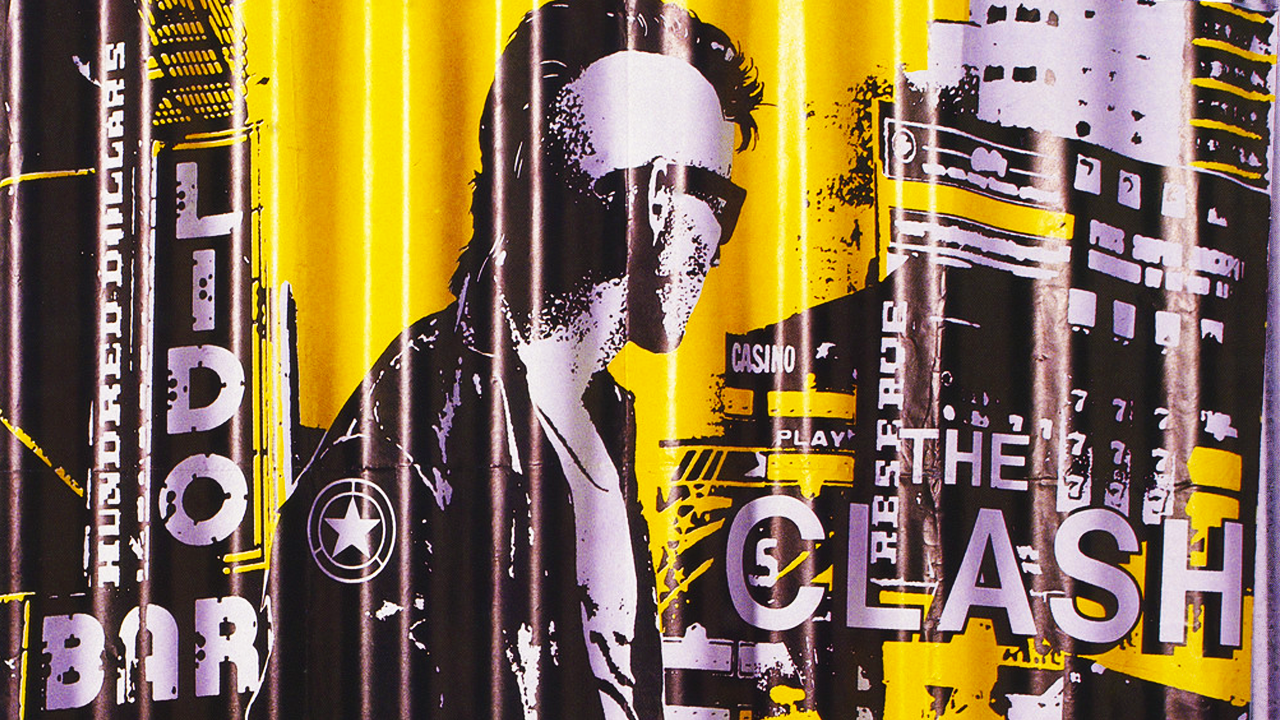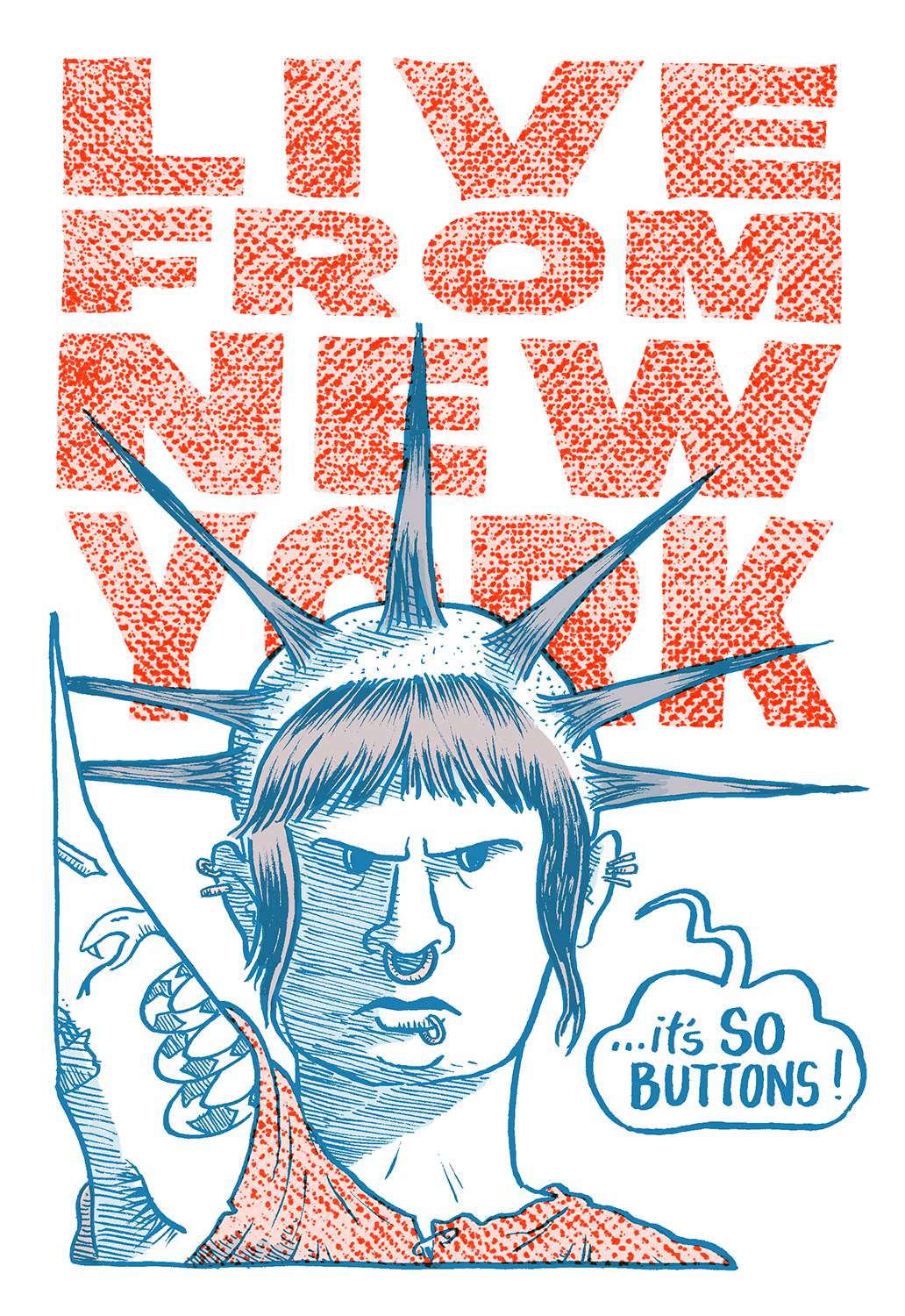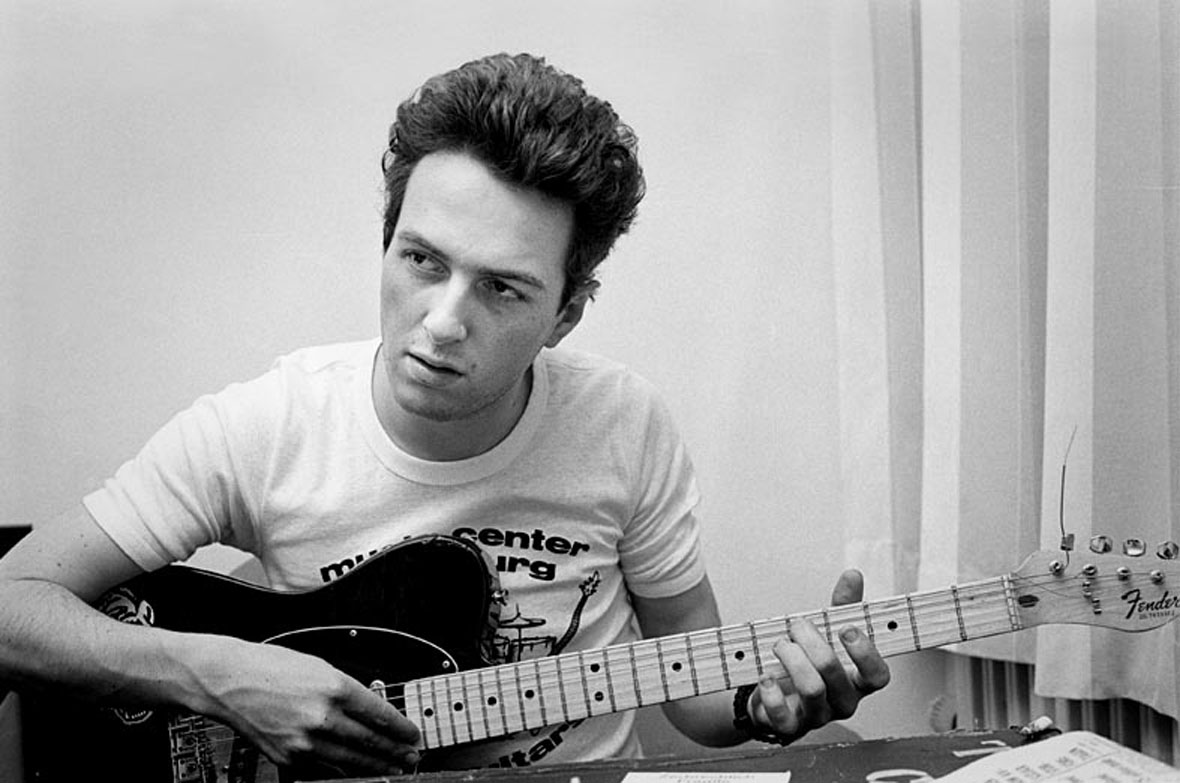The Clash‘s 1985 death knell Cut the Crap has long been the subject of severe scrutiny from fans and critics alike. This album, the obvious black sheep of their discography, was recorded at a tumultuous point in the legendary band’s career. A few years prior, Joe Strummer and Paul Simonon made the decision to give longtime drummer Topper Headon the boot due to his increasingly problematic heroin addiction (though it’s worth noting that even Topper himself admits it was the right choice). The subsequent firing of founding member and songwriter Mick Jones dealt an even more significant blow to the Clash, ushering in a new era of the band, often referred to as “The Clash Mark II”. But Strummer and Simonon made their bed, and when it came time to record Cut the Crap, they got to lie in it.

Joining the duo beneath the sheets (along with new guitarists Nick Sheppard and Vince White, and new drummer Pete Howard) was manager Bernie Rhodes, and boy did he shit the bed. Rhodes, who was fired by the Clash in 1979 and soon after re-hired, supposedly at the demands of Strummer, handled production duties on Cut the Crap. One small problem: the guy had no fucking clue what he was doing. Unless you count his involvement in the recording of Vic Godard & Subway Sect’s 1980 LP What’s the Matter Boy?, Rhodes had virtually no experience as a producer before Strummer handed him the keys to the Ferrari (or Ford Fiesta, considering the present state of the Clash).
The lack of a competent producer becomes blatantly obvious within a few seconds of pressing play on Cut the Crap, as you are immediately greeted by the barrage of absolute bullshit that is the opening track “Dictator”. The first thing that is immediately apparent is that new drummer Pete Howard is not playing on the recording; Rhodes instead opted to use one of the cheesiest sounding drum machines you’ll ever lay ears on. Soon after, your ears begin to bleed from the incessant radio chatter, coupled with piercing synthesizers that seem to be 100 decibels louder than everything else in the mix. You can barely hear Strummer’s vocals or any of the guitars under the mountain of noise. And it’s a real shame because it sounds like there might actually be a decent song somewhere in there.
“Dirty Punk” is a major improvement over its predecessor, sonically at least. It seems Rhodes may have put down the psychedelics for a minute and let Strummer do his thing on this track. Unfortunately, while the synthesizers, horns, and general noise are not present, the lyrical content is disappointingly shallow and fails to grab me. We get it, Joe! You’re a dirty punk and you’re really excited to drive, drive, drive your big, big, big, big, big car up the boulevard. You don’t have to remind us a dozen times in the span of three minutes.
Another major misstep made in the production of Cut the Crap was the decision to use gang vocals on every. single. fucking. chorus. I’m not exaggerating – just listen to the album. Every chorus is shouted, full throat, regardless of lyrical context. As a result, all nuance is removed from the songwriting. The otherwise beautiful, heartfelt “This is England” is tarnished as Strummer is joined by a choir that can barely carry a tune, leaving little to differentiate the song from ultra-hollow tracks like “We Are The Clash” and “Are You Red..Y”. If scholarly source Wikipedia is to be believed, Rhodes is not to blame for this decision, as most of the band was in favor of the liberal use of “football-style chants” for the choruses.

Now that we’ve gotten all that negativity out of the way, let’s switch gears and focus on some of the more positive aspects of Cut the Crap. Let’s start with “Fingerpoppin'”! This groovy little number is without a doubt the crown jewel of Clash songs, with its funky slap bass and introspective lyricism – ah, who am I kidding? This song fucking suuuuuuuucks! It is awful. A lot of tracks on this album have the potential to be pretty good if Bernie Rhodes didn’t take a god damn baseball bat to their kneecaps; “Fingerpoppin'” is not one of them. This is an aggressively corny song that should be erased from existence. I listen to this record from time to time because I’m mentally unstable, but I cannot in good faith advise you to listen to this track.
All jokes aside, there are some very enjoyable songs to be found on Cut the Crap. “Movers and Shakers” is really, really good – one of the few tracks with a chorus that lends itself to the gang vocals (in fact, I can’t listen to this song without singing along to the chorus). “This is England”, generally considered the best song on the album, is excellent as well. “Three Card Trick” and “Play To Win” remind me a lot of Strummer’s later output with his other band Joe Strummer and the Mescaleros.
What frustrates me the most about Cut the Crap is that deep, deep down, under the many layers of horrendous production, there’s a solid album. That’s made abundantly clear when you listen to recordings of “The Clash Mark II” playing these songs live. There is a stark contrast between what this record was intended to sound like, and what was ultimately realized after Rhodes had his way with it. Take a minute to check out the live recording of “Dictator” below – it’s actually incredible how much better it sounds than the catastrophe of a studio version. This YouTube playlist with live versions of eight tracks from the album is a great listen, and the Out of Control demos also paint a very different picture of these songs.
Was Cut the Crap ever going to usurp classic Clash records like Give ‘Em Enough Rope or Combat Rock as a fan favorite? Of course not; I’m not that delusional. But I think it certainly deserved a much better fate, and could have made for a respectable sendoff for “The Only Band That Matters”, had there been a serviceable producer at the helm (or anyone not named Bernie Rhodes). If you want an idea of what that version of Cut the Crap could have sounded like, I recommend checking out the “Mohawk Revenge” remix of the album. This fan-made release does a masterful job of mixing some of the salvageable elements of the original tracks with fully re-recorded instrumentation. The cacophonous sounds of drum machines, blaring synthesizers, and the many other downright malicious production decisions are nowhere to be found. Even the most ardent Cut the Crap haters will probably enjoy this re-creation of the much-maligned album.
Ultimately though, Cut the Crap would be the final nail in the coffin of the Clash. Joe Strummer disowned the album, and after unsuccessfully threatening to sue Epic Records to prevent its release, he went into hiding in Spain. The band did not tour in support of the record; they broke up within weeks of its release (though Bernie Rhodes allegedly made a last ditch effort to replace Strummer and keep “The Clash” on the road). And with that, “The Only Band That Matters” was no more.




